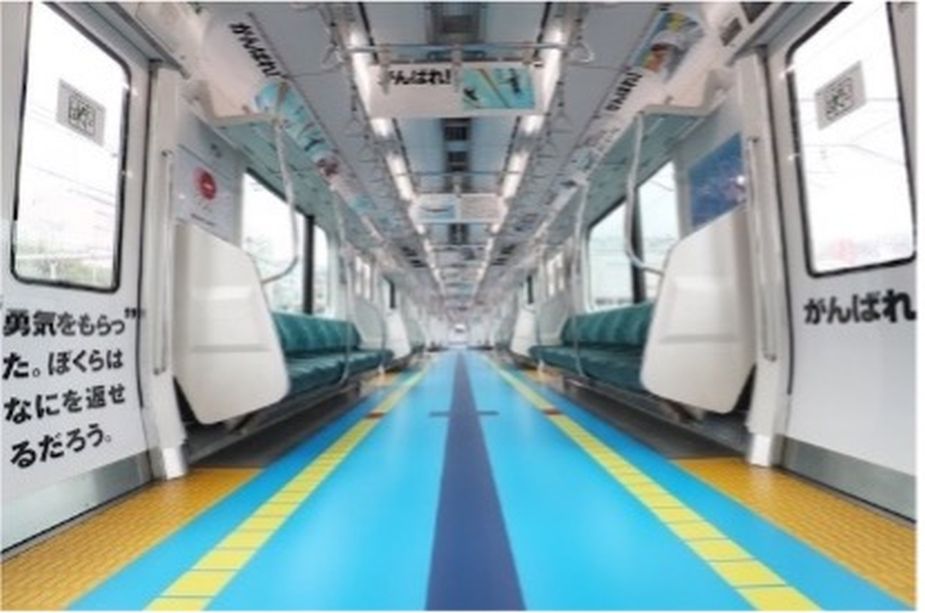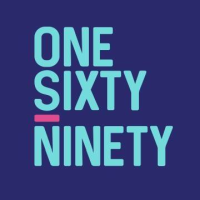
Is There Too Much Clutter in the Tokyo 2020 Olympic Games Domestic Partnership Structure?

While domestic sponsorship deals are usually brokered by the Organising Committee of the Olympic Games (OCOG), the Tokyo Organising Committee (TOCOG) enlisted advertising agency Dentsu to sell their sponsorships. As shown in Figure 1, the value and number of deals secured by Dentsu have far exceeded past Games’, with 67 sponsors (15 Gold Partners, 32 Official Partners and 20 Official Supporters), valued at over $3.3bn.

Figure 1: Olympic Domestic Brand Sponsorship (WARC, 2020)
Why is Tokyo’s domestic partnership structure so unique?
1. For the first time, domestic sponsorship is non-exclusive, meaning competing brands in given sectors have signed up, as shown below. The controversial approach runs counter to the IOC’s traditional adherence to category exclusivity for sponsors.
- Airlines: Japan Airlines & ANA
- Banks: Mizuho & SMBC
- Travel: JTB, KNT & Tobu
- Security: Secom & Alsok
- Consumer Goods: Kikkoman & Ajinomoto
- Toilet Manufacturers: Lixil & Toto
2. The sales process coincided with positive economic trends linked to ‘Abenomics’ in Japan. TOCOG presented the Games as a national project, framing participation as a patriotic duty alongside long-term recovery from their 2011 earthquake and tsunami.
3. The lack of sophistication amongst corporate Japan in using sports as a marketing tool potentially encouraged mass sponsor uptake as companies feel the need to support sports through sponsorship and few are at the point of signing deals based on ROI analysis. Sponsorship education was therefore limited; particularly regarding tangible assets and additional budget spend on activations.
Is there too much clutter?
With 82 companies having the right to officially associate with the Games — alongside a city full of possible ambush brands — Tokyo 2020 is the most crowded space in Olympic history.
Category non-exclusivity means domestic sponsors cannot activate as Official Industry Partners and therefore have a more distanced and undistinguished association with the Games, potentially reducing the transfer of quality from the Olympic brand. We’ve seen issues of overlapping sponsorships before, whereby the clutter is perceived to diminish the value of each brand’s investment; the Reebok-Nike overlap at the 1992 Barcelona Games being an example (Team USA’s Official Olympic Sponsor was Reebok however, Nike sponsored press conferences with the Gold Medal winning US Basketball Team).
Changes to Rule 40 of the Olympic Charter has also inevitably created confusion amongst consumers and affected the recognition and recall of sponsors. Research has found clutter to impair consumers’ cognition and put strain on their already limited information retention capacity. It’s also argued that this structure threatens to devalue Olympic sponsorship by promoting sponsor competition, rather than unification behind the Olympic movement.
The most effective solutions to clutter involve big spending and early planning, yet the majority of domestic sponsors don’t have the budget or scale to compete with TOP partner activation and may struggle to get their money’s worth. The record-breaking number of OCOG partners has also resulted in diluted Olympic rights (i.e. less tickets and hospitality per partner), with the impact of COVID-19 reducing activation opportunities around these, and therefore ways for sponsors to stand out.
Sponsors themselves have questioned the sponsorship value:
“What do I really get other than the right to have a small Olympic symbol under my company’s logo?” - Tokyo 2020 Olympic Gold Partner.
However, the impact of clutter may be less, as a fear of marketing against public opinion has led fewer brands to activate around Tokyo 2020. Toyota, for example, cancelled advertising out of respect for nations who did not approve of the Games progressing.
Articulation of a sponsorship is key and it is argued that contemporary marketing trends enable sufficient differentiation and cut-through to make the structure sustainable. The rise of digital and social platforms have shifted marketing focus from visibility to engagement, with the influx of influencer marketing offering sponsors more accessible, direct and targeted interaction with audiences. Authentic content, fuelled by establishment of a unique, meaningful link with the Olympics, can influence users’ brand attitudes, shown by NTT in their ‘Smile Relay' campaign. This increasingly digital landscape provides tools for sponsors with limited rights to be agile, respond to changing consumer needs and optimise messaging. Here, developments in data analytics enable accurate measurement of the activation’s impact of sponsorship activation through real-time tracking of impressions and engagement across platforms. Sponsors’ ability to target such tangible engagement and adapt it in real-time, enables them to differentiate their messaging and quickly measure its cut-through to justify their overall investment.
As the competition between sponsors increases, so does the demand for companies to provide more cohesive campaigns and sponsorship to captivate consumers. This has meant that Tokyo 2020 domestic partners have had to devise more innovative solutions to activate their rights:
• Fujitsu developed an AI driven judging system for gymnastics using 3D laser sensors and numerical analysis to assist judge accuracy.
• NEC provided a facial recognition system that verifies athletes, staff and officials as they enter venues. They also helped develop 3DAT (3D athlete tracking) to provide broadcasters with a system to boost instant-replay videos (CNET, 2019).
The use of this innovation should benefit the Games, sport and the host market post-Games, demonstrating that the sponsorship clutter may in fact develop the sophistication of sponsorship activation. With the Japanese government estimating that the country’s sports industry will triple in size annually by 2025, fuelled by the hosting of the 2020 Olympics, 2026 Asian Games and World Masters Games, this sponsorship structure offers partners invaluable experience whilst simultaneously forming associations between sport and brands.
In comparison to the individualist nature of Western countries, Japanese culture is more collectivist and lends itself to be more tolerant of clutter as exclusivity is prioritised less. Dentsu strategically used the Japanese ‘follow-the-others’ mentality in its sponsor recruitment, leading to no company wanting to be left out. During the 2016 Olympic Games in Rio, eight top-tier domestic Tokyo 2020 sponsors deployed an OOH media campaign along the train line circling Tokyo (the Yamanote Line), as shown in Figure 2, demonstrating how Japanese brands are able to work together and potentially make Tokyo’s record-breaking sponsorship roster effective as part of their culture.

Figure 2: The Yamanote Line (Japan Trends, 2016)
To summarise, Tokyo 2020’s domestic sponsorship structure is unique in its size, value and non-exclusivity, with 67 sponsors across three tiers. This structure can be deemed cluttered as sponsors are forced to compete for consumer attention and activation opportunities, both within and outside their industry. Yet it’s argued that contemporary marketing trends make this structure sustainable by enabling sponsors to utilise emerging digital platforms and strategies to differentiate themselves through targeted, optimised and measurable activation. Meanwhile, the collectivist nature of Japan, along with its growing sports industry, offers feasibility to the ‘cluttered’ sponsor roster, as well as development in the sophistication of sponsorship as a whole. Despite this, perception of clutter is largely dependent on the national opinion of the Games. Japanese brands may want to take ownership of the country’s recent success and look to extend their JOC partnerships to create a legacy piece surrounding Tokyo 2020.













